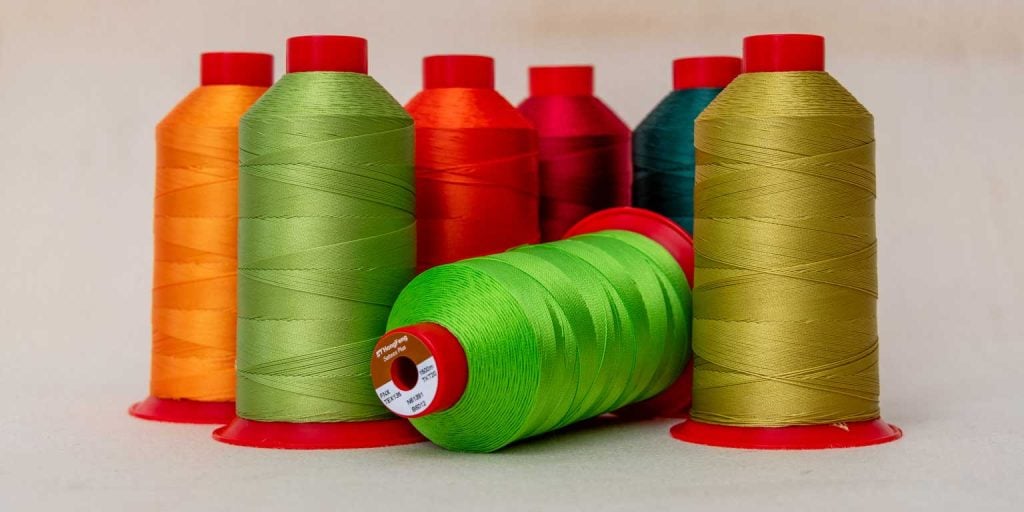When it comes to sewing, one of the significant challenges faced by sewers is the breakage or fraying of High Strength Sewing Thread during the sewing process. There are several factors that can cause the thread to break or fray, including tension, stitch length, needle size, and the type of thread used. With a little bit of knowledge about the different types of thread, you can choose the right one for your machine and sewing project, and reduce the chances of thread breakage or fraying.
Table of Contents
3 types of most durable threads

- One of the most durable threads available is nylon thread, which is resistant to breakage and fraying. Nylon thread is very strong and resistant to abrasion, heat, and chemicals. This thread is perfect for sewing applications that require strength and durability, such as outdoor gear, upholstering, and heavy-duty clothing.
- Another durable thread is polyester, which is also resistant to breakage and fraying. A polyester thread is known for its strength and provides an excellent alternative to natural fibers like cotton or silk. It’s perfect for sewing projects that require strength, durability, and abrasion resistance. Polyester thread is ideal for sewing denim, canvas, and other heavyweight fabrics.
- Bonded nylon or polyester thread is another commonly used thread that is preferred for its strength and durability. This thread has a special coating that increases its resistance to abrasion, chemicals, and moisture. Bonded nylon thread provides excellent stitch quality and is useful in sewing heavy-duty fabrics like leather, canvas, and upholstery.
4 tips of sewing thread size
- When it comes to thread size, selecting the right size is essential to avoid fraying or breakage. Generally, the smaller the thread size, the weaker it will be. In contrast, larger thread sizes are stronger and more durable. Selecting the right thread size depends on the fabric weight and needle size used.
- If you are working with lightweight fabrics, you will need to use a smaller thread size that is less likely to cause puckering or distortion of the fabric. On the other hand, heavier fabrics require a thicker thread to provide the necessary strength and prevent the thread from breaking or fraying during the sewing process.
- When choosing a thread size, it’s essential to consider the type of machine you are using. Some machines are designed to work best with certain thread sizes, and using the wrong size can cause threading issues. For example, machines that are designed for light-duty stitching will work best with lightweight thread like size 40 or 50 cotton or polyester thread.
- Heavy-duty machines that are designed for sewing leather or canvas require a thicker thread, like size 69 or higher, to provide the necessary strength and prevent thread breakage. The machine manual will provide recommendations for thread size and weight for different materials.
Stitch length
Another factor to consider is the stitch length. Longer stitch lengths require a thicker thread size to provide the necessary strength. Shorter stitches can get away with a smaller thread size because they strengthen the seam’s integrity by increasing the number of stitches per inch.
Summary
In summary, nylon, polyester, and bonded nylon thread are the most durable threads that are resistant to breakage and fraying. Thread size also plays a crucial role in preventing thread breakage and fraying. For lightweight fabrics, a smaller thread size is ideal, while heavier fabrics require a thicker thread size like size 69 or higher. The machine type and the stitch length will also determine which thread size is best for your sewing project. By selecting the right thread size and type, you can enjoy the best stitching quality and reduce the chances of experiencing thread breakage or fraying, making your sewing tasks less challenging and more enjoyable.